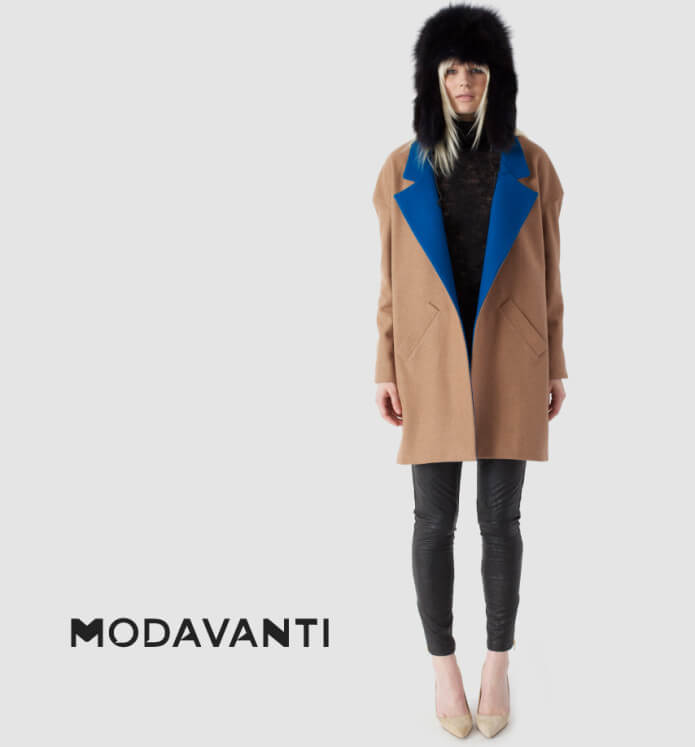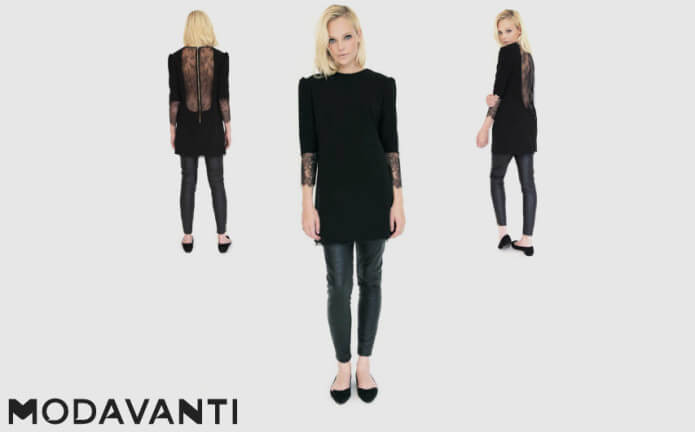Modavanti is announcing the launch of an online retailer for sustainable fashion–an entire site for just ‘Looking good. Feeling good. Doing good.’ They’ve even developed a unique sustainability badge system to allow clients to quickly see the sustainable connection of each item. And, Modavanti donates 2% of every sale to one of three charitable partners.
“I feel we are at a ʻWright Brothers momentʼ: everyone realizes that sustainability in fashion is something we want and need, but nobody has yet figured out how to make it work.” Modavanti.com founder and CEO David Dietz says, “We believe that by emphasizing the quality of the fashion we can persuade people that they donʼt have to choose between looking good and feeling good.”
Read our interview with Modavanti’s Adam Clancy to learn more about who they are and why they are out to prove profits and progress can go hand in hand.

The idea for Modavanti.com was born out of our desire to make a social impact through business. The fashion industry in particular has been slow to change the way it operates. To give you one example, it takes 400 gallons of water to grow enough cotton to produce just one cotton t-shirt. This is clearly an unsustainable path and we believe that by promoting designers who are producing clothes in a more socially conscious manner we can bring about real change within the fashion industry. We believe that profit and progress can go hand in hand.
Who is Modavanti CEO, David Dietz?
We like to call David’s story: ‘Going from the Arab Spring to the Spring Collection.’ Two years ago he was covering the revolutions in the Middle East as an aspiring journalist. But David had long wanted to get involved in social entrepreneurship; in college he helped start a fair trade tea delivery service around campus and knew he eventually wanted to start his own business. David believes passionately in the potential of for-profit businesses to do social good and believes that his generation — Gen Y — has an obligation to protect the environment and promote labor rights.

We love your sustainability ‘badges.’ How did Modavanti begin to research, choose and ‘badge’ each company you sell?
The trouble with the term ‘sustainability’ is that it carries a different meaning to different people — it has yet to be codified, certainly in the mind of the general public. Recognizing this lack of concrete meaning led us to develop the badge system. We have 8 badges because we want to promote and reward the many (and varied) steps designers have taken to be more sustainable in their practices. Our badges are based on two main categories: eco-friendly and ethically sourced. We used these two to guide the rest of the badges (eco-friendly: recycled, eco-conscious, energy efficient, organic; ethically-sourced: made in USA, handmade, fair-trade).

How will the sustainability badges make it easier for customers to buy, say products made in the US–products they want to support?
Our aim is to become the recognized and trusted destination for sustainable fashion. Rather than having to do all the legwork of looking around the internet or asking inexperienced store assistants for detailed information about where and how an item was made, we hope that we can become the one stop shop for everything sustainable. The ability for our customers to search by the sustainability criteria that resonates with them (in addition to the usual things like price and designer) is something that we don’t believe is available on any other fashion site. As I mentioned above, it’s also part of our belief that sustainability means different things to different people. We hope our variety of badges can appeal to a wide audience.
2% of profits go to one of three charities. How did you become involved in supporting these charities?
We wanted to support three different charities that are involved in three different areas of sustainability. It was also very important that the causes we partner with had strong feedback loops and used the money in the field rather than to pay their employees. We picked Charity:Water because the fashion industry wastes a tremendous amount of water every year. Not only that, but apparel factories pollute many of our rivers and streams, particularly in developing countries. We support Nest because they promote fair labor and the ancient traditions of artisans in countries such as India. We partnered with 19th Amendment because their mission is to keep the next generation of fashion designers producing sustainably right here in America — a goal that aligns very much with our ethos.

What is sustainability to you?
Sustainability to us means adjusting how we live and how we produce to preserve our natural resources as much as possible. While we certainly don’t advocate a ‘Thoreau at Walden’ like existence, we do want to make sure that we bequeath a healthy and stable planet to our children and grandchildren. At the rate technology is improving there is such an opportunity to make a lasting, positive impact. Why continue to strain our natural resources when we can produce beautiful garments made of plastic bottles from landfills? But sustainability isn’t just about being eco-friendly. It’s also about treating our fellow humans with dignity and respect and guaranteeing fair wages so that others can prosper as well.
Shop the MODAVANTI store here.
